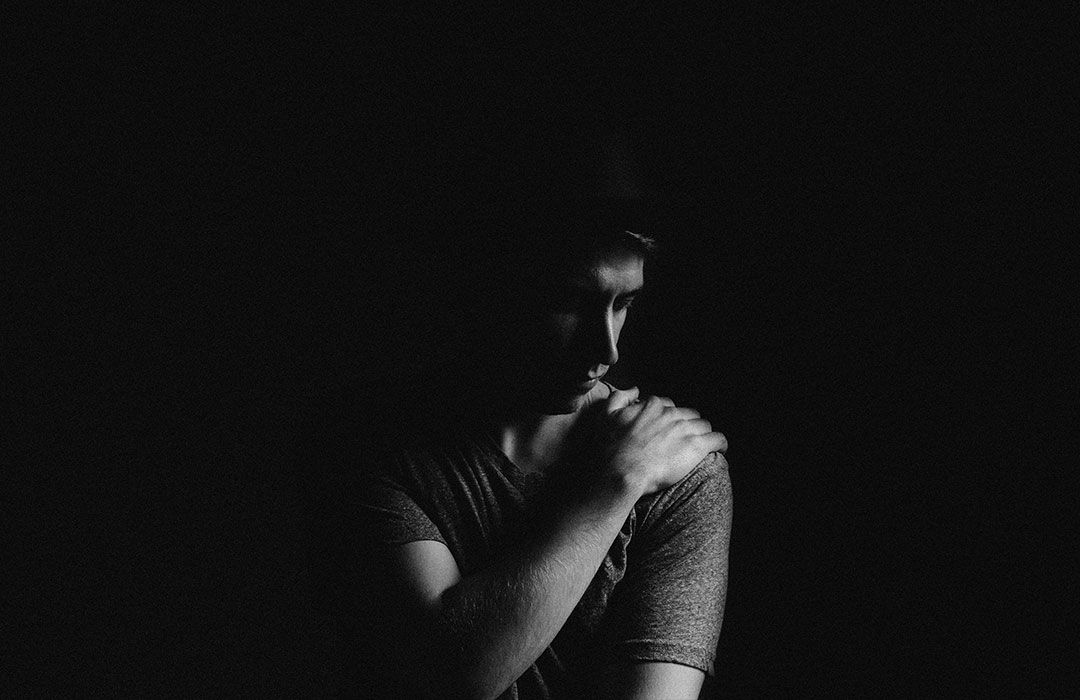
- Many people now understand the mood and behavioral symptoms of depression, but the physical symptoms still go widely unrecognized.
- Physical symptoms of depression include joint and muscle pain, back pain, fatigue, appetite changes, headaches, and digestive issues.
- These physical symptoms (in addition to the mental and emotional struggles) can make day-to-day activities difficult—but self-care is still important and can supplement depression counseling.
- A few tips for engaging in self-care include prioritizing your sleep, reducing stress through meditation or journaling, and maintaining a healthy diet.
- Additionally, exercising and spending time outside in the sun can bring remarkable benefits and lessen the impact of harmful depressive symptoms.
Intense feelings of despair. Anxiety. Hopelessness, Loss of interest. Mood swings. Irritability. Social isolation. What do all of these things have in common? They’re symptoms of depression—and well-known symptoms, at that. As we grow more comfortable talking about mental health and mental illness, depression is often a topic of interest and importance. That said, depression is not totally understood by the general public; it is not the sum of these mood and behavioral symptoms listed above. There are physical symptoms involved too, of which can be just as harmful or debilitating.
Depression Isn’t Just Mental—It’s Physical, Too
Depression is a mental illness, but, as we touched on above, those with the condition suffer physically as well. “Usually, we don’t tend to think of depression as a disorder which causes physical pain, but there is no denying that some people who suffer from depression are feeling pain and discomfort on a physical level,” Caleb Backe, health and wellness expert, explains. “Sometimes, a person (or physician, for that matter) will misinterpret physical symptoms as being standalone and not attribute them to a mental condition.”
For this very reason, it’s important to understand the physical symptoms of depression. So, what are they? Psychotherapist Raina Wadhawan, details the most common, from body aches to digestive problems:
- Joint and muscle aches: Joint and muscle aches are very common among people with depression. These aches often confuse people and are taken to indicate a presence of a physical illness rather than heralds of psychological distress.
- Back pain: According to Dr. Joseph Garbely, Chief Medical Officer of Friends Hospital in Philadelphia, PA, “major depression is thought to be four times greater in people with chronic back pain than the general population.”
- Fatigue and lower energy levels: Loss of energy and feelings of physical exhaustion is common among people with depression and limits their daily activities. These symptoms are often interpreted as signs of laziness and personal inadequacy fueling self-criticism that often worsens depressive feelings.
- Appetite changes: The brain regions implicated in appetitive responses to food have also been implicated in depression. This can lead to either an increase or decrease in appetite.
- Headaches: Headaches, especially tension headaches, are common among individuals with depression.
- Digestive problems or irritable bowel syndrome: These issues have also been known to be triggered by depression.
Self-Care with Physical Symptoms of Depression: 5 Tips
When we’re exhausted, uncomfortable, or in serious physical (and mental) pain, we don’t want to do anything. We don’t want to get out of bed, we don’t want to leave the house, we don’t want to be bothered. That said, a major key to overcoming or managing your depression is engaging in self-care and expending a little energy to stay on top of your health. In fact, self-care can serve as a major supplement to depression counseling or therapy. Here are a few tips for engaging in self-care when you feel depressed:
1) Prioritize your sleep. If you’re depressed, you might have a difficult time falling or staying asleep—but the good news is that you can make a few changes to improve your sleep quality. Try following a set sleep routine each night, practice relaxation techniques before bedtime, and only get into bed when you’re ready to sleep.
2) Find means for stress relief. Stress can worsen or even trigger depressive episodes, which makes self-care and stress-relieving techniques important. A few practices which have shown to reduce stress and relieve symptoms of depression include meditation, yoga, and journaling. Find an activity you enjoy and incorporate it into your everyday!
3) Stay on top of your diet. Our diet can also have a significant impact on our mental health. To boost your mood and keep your mind right, you should reduce your intake of certain foods such as those with high amounts of chemicals, preservatives, sugar, and carbs. Base your diet around natural foods like fruits and vegetables instead.
4) Find a form of exercise you enjoy. I know, exercising is probably the last thing you want to do right now. But if you can work up the motivation to go for a run around the block, make it to that cycling class, or even just do some yoga in your living room, you’ll experience a boost in your mood and your energy. Not to mention that exercising during the day can help you sleep better at night.
5) Spend time in the sun. Finally, spend as much time as you can under the sun. Sunlight will help to improve your mood by increasing your serotonin levels. So, whenever you can, get outside and experience these benefits. Take your pup on a walk, read a book at the park, start gardening—whatever it is you enjoy.
Let’s keep in touch! Sign up to receive our newsletter:
Start a Relationship with An Exceptional Counselor
- Skilled and caring professional counselors
- Accepting all major and most insurances
- High-touch customer service & premium benefits
- Same- or next-day appointments
- Ultra-flexible 23.5hr cancellations














It’s helpful that you mentioned how finding ways to relax before bed can help you sleep better when you have depression. I have started to notice that my wife tends to wake up in the middle of the night, and I think that she has trouble staying asleep because she anticipates going to work in the morning. Maybe she should seek professional help in order to prevent her depression from affecting her ability to rest.
I love that you mentioned how finding activities that are enjoyable to you can help you relieve stress and prevent feeling depressed. My brother has been having trouble finding the motivation needed to go to work each day, and I am worried that his depression may be preventing him from enjoying playing sports like he used to. Maybe he should find a professional that can help him relieve his symptoms of depression.